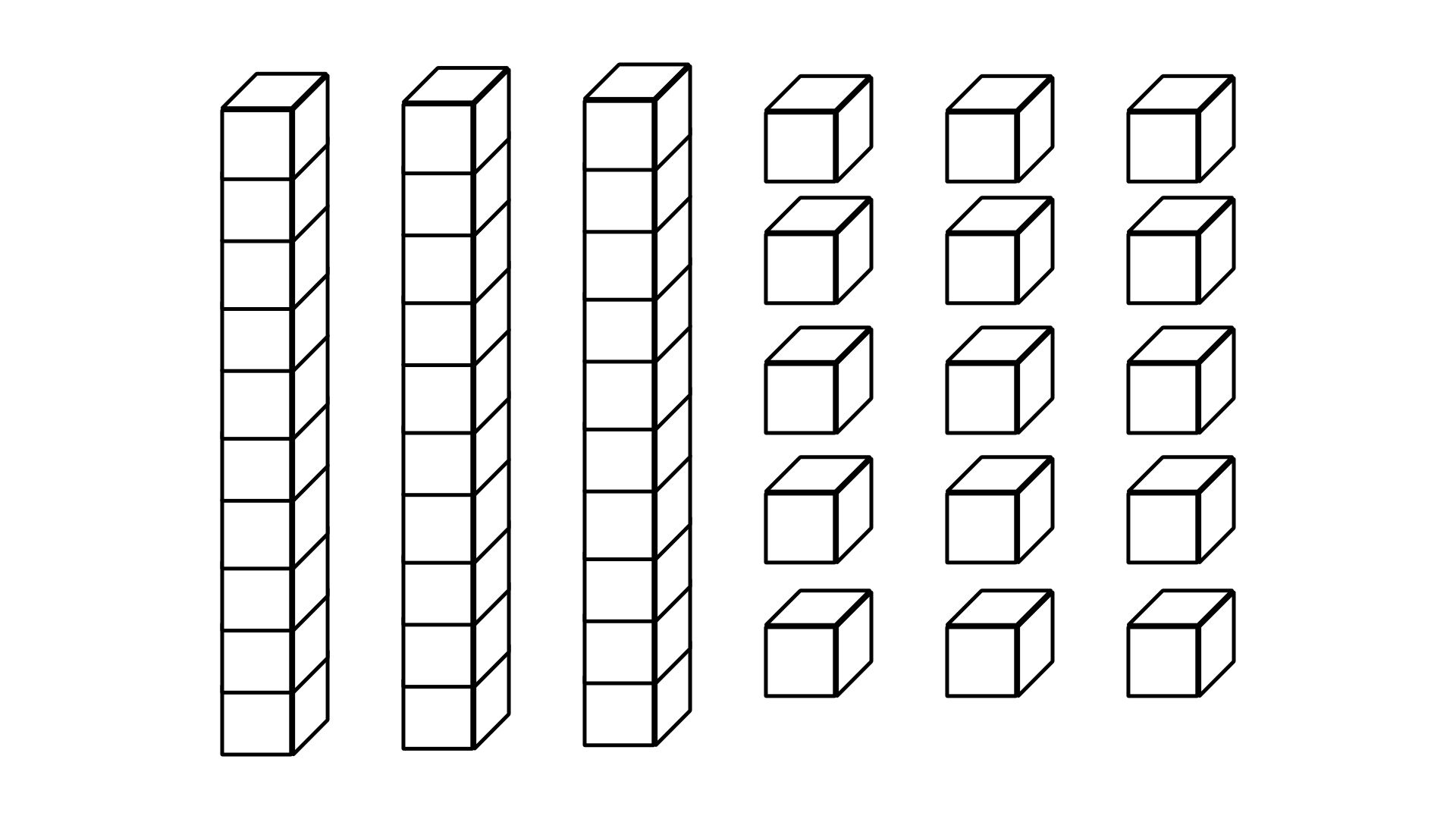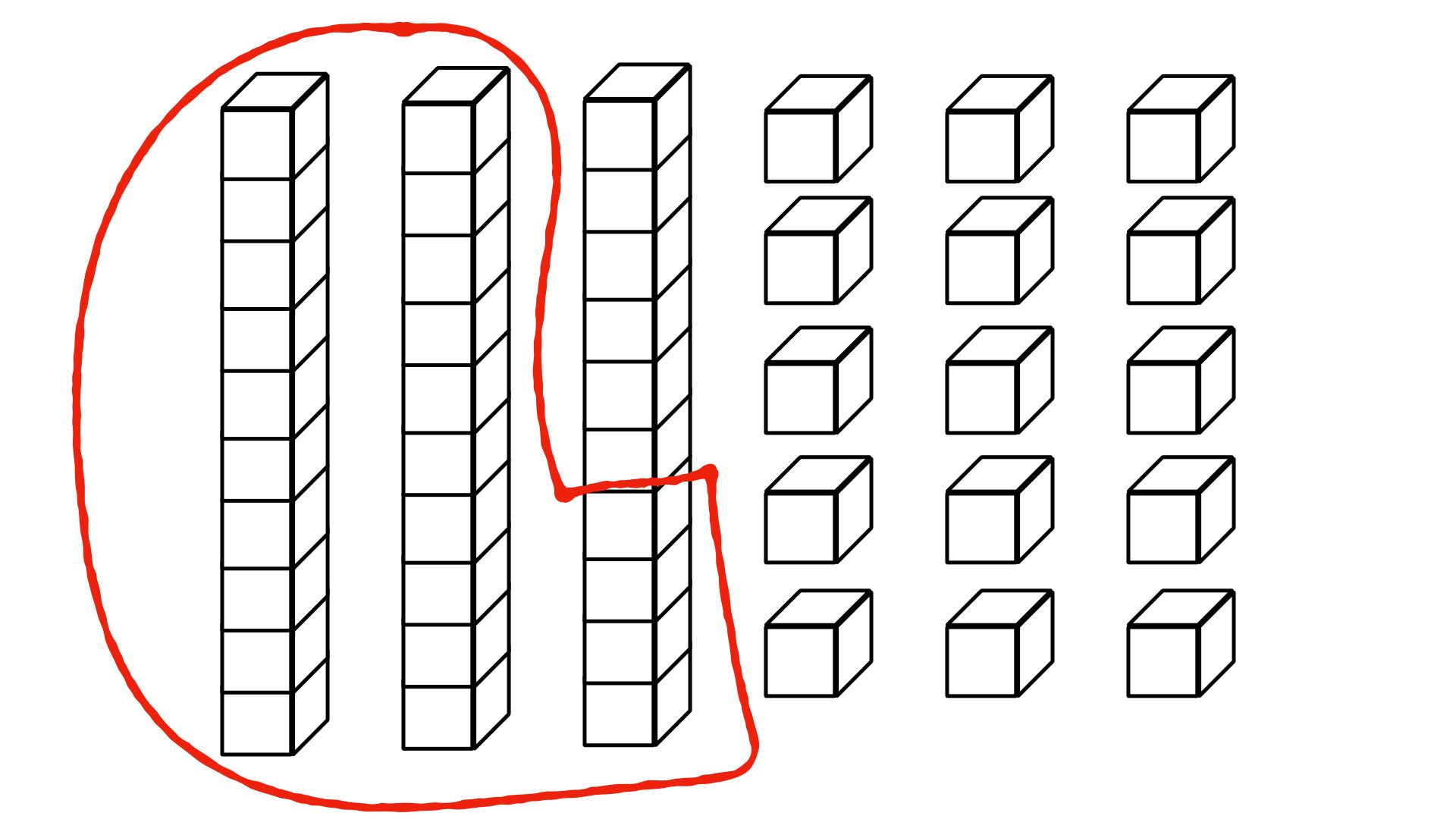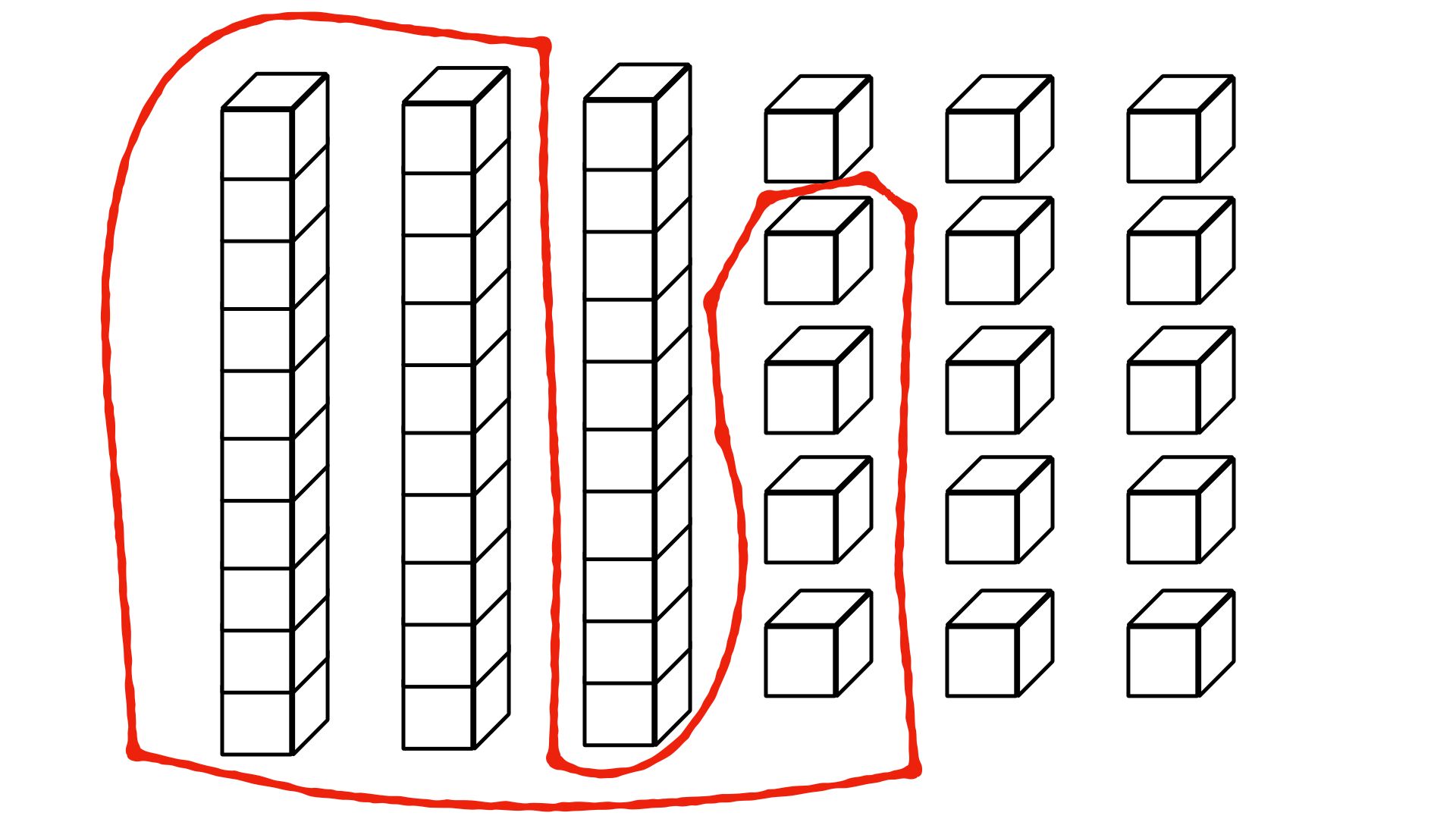Education That Makes You Stupid
Often, we assume that more education leads to smarter individuals – at least, "smarter" as modern societies would define it. Generally speaking, more years of education lead to higher abstract reasoning skills. And more years of education correlate with higher job earning potential. And there's at least some evidence that, over the long haul, education helps students to transfer problem solving skills to new situations. In other words, we teach kids to be smart.
But you can teach someone to be stupid, too. Here is a replica of one of my son's homework assignments. The assignment was to circle 24 cubes. Please do so mentally, now.

This is what my son did:

From a counting perspective, it's not wrong. He did, in fact, circle 24 cubes. The thing is, he didn't circle the right 24 cubes. His teacher expected the kids to take advantage of the grouping of the cubes into tens and ones. And to not care about drawing an inefficient shape. She was looking for something like this:

So my son's work was marked wrong, in the same way it would have been as if he had circled the wrong number of cubes. Points off on the test and he has to re-circle the cubes – "correctly" this time.
Note what has happened: the teacher has conflated one kind of mistake (a misunderstanding of the conceptual idea of "24") for another (a misunderstanding of the expected behavior). But conflating these two kinds of mistakes is itself a mistake. What has the student learned, here? That, regardless of the truth value of the solution, the right solution is the one that the teacher expects of you. Pleasing the teacher and following the rules are more important than providing the right answer.
Ironically, my son's solution evinces an important abstract understanding that the teacher's "correct" solution does not: blocks of ten are just individual blocks stuck together.
This is, of course, a trivial example. It's a small lesson in stupidity. But as these small lessons add up over the course of many years, you train people to think stupidly.
They get used to being pedantic. They get used to paying attention to the wrong things. They get used to following rules. And they get used to privileging form over substance.
References
There are many studies which suggest how education increases IQ scores. Here's one:
Ritchie, S. J., Bates, T. C., Der, G., Starr, J. M., & Deary, I. J. (2013). Education is associated with higher later life IQ scores, but not with faster cognitive processing speed. Psychology and aging, 28(2), 515. https://psycnet.apa.org/record/2012-34906-001
This looks at various lines of data that suggest how formal education, IQ, and income interact:
Ceci, S. J., & Williams, W. M. (1997). Schooling, intelligence, and income. American psychologist, 52(10), 1051. https://citeseerx.ist.psu.edu/document?repid=rep1&type=pdf&doi=200bc8757f5265bf999c898f524b861ff525bb1a
This is a favorite of mine, where graduate students demonstrate the transfer of problem solving skills to a new domain.
Martin, L., & Schwartz, D. L. (2009). Prospective adaptation in the use of external representations. Cognition and Instruction, 27(4), 370-400. https://citeseerx.ist.psu.edu/document?repid=rep1&type=pdf&doi=b1606dbcbeb69ebf73228af674b763ce2957da2e
There is a larger review of studies that looks at years of education to problem solving transfer (a notoriously difficult thing to achieve) and finds some evidence that school actually does improve transfer. I can look it up if anyone's interested.
Member discussion